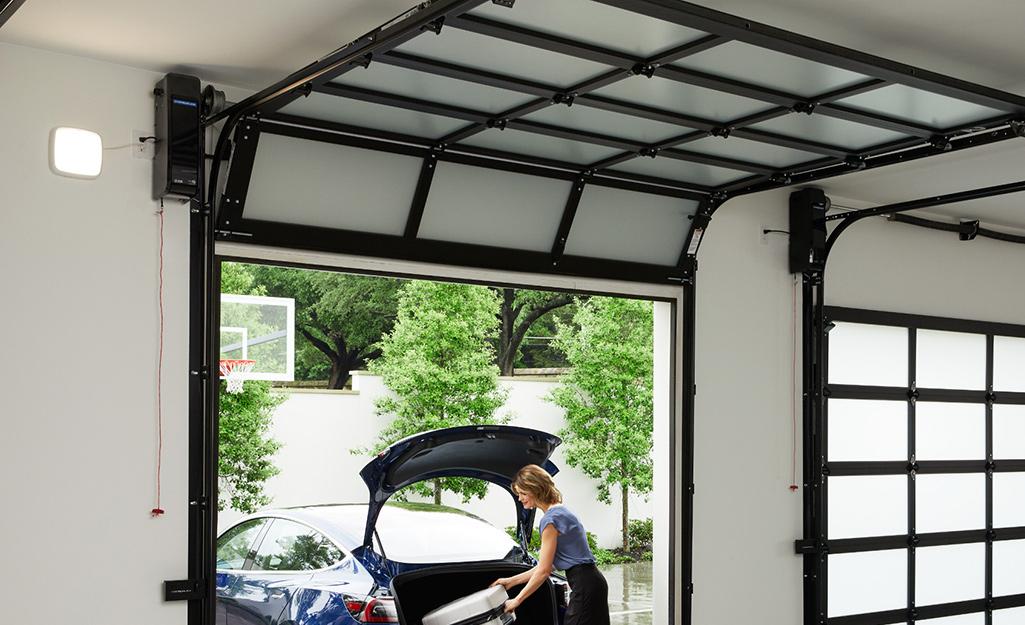A properly functioning garage door is essential for the smooth operation and security of your home. However, if you notice that your garage door is opening and closing slowly, it can be frustrating and concerning. In this article, we will explore the common causes of a slow-moving garage door and provide practical solutions to address the issue, ensuring your garage door operates efficiently and safely.

Understanding the Causes:
- Lack of Lubrication: One of the primary reasons for a slow garage door is a lack of proper lubrication. Over time, the moving parts of the door, such as hinges, rollers, and tracks, can accumulate dirt and debris, causing friction that slows down the door’s movement. Insufficient lubrication can lead to premature wear and tear on these components, further exacerbating the problem.
- Worn-out Springs: Garage door springs play a crucial role in counterbalancing the weight of the door, making it easier to open and close. However, over time, these springs can become worn out and lose their tension, resulting in slower door movement. Worn-out springs can also pose safety risks, as they may break suddenly and cause the door to become unstable.
- Misaligned Tracks: Misaligned tracks can hinder the smooth movement of the garage door. If the tracks are not properly aligned, the rollers may not run smoothly along the track, causing the door to open and close slowly or get stuck altogether. Regular inspection and maintenance of the tracks can help prevent this issue.
Solutions to the Problem:
- Regular Lubrication: To address the issue of a slow-moving garage door due to lack of lubrication, it is essential to perform regular lubrication maintenance. Use a silicone-based lubricant to grease the hinges, rollers, and tracks. Be sure to clean any accumulated dirt and debris before applying the lubricant. Regular lubrication will reduce friction and help the door move more smoothly.
- Spring Replacement: If you suspect that worn-out springs are the cause of the slow garage door, it is crucial to seek professional assistance. Garage door springs are under high tension and can be dangerous to handle without the proper knowledge and tools. A qualified technician can inspect and replace the worn-out springs, ensuring your garage door operates safely and efficiently.
- Track Alignment: Checking and maintaining the alignment of the garage door tracks is vital to prevent slow door movement. If you notice any misalignment, gently tap the tracks back into place using a rubber mallet. However, complex track alignment issues may require professional help to avoid causing further damage to the door.
Conclusion:
A slow-moving garage door can be a bothersome problem, but understanding the underlying causes and implementing the right solutions can resolve the issue effectively. Regular lubrication, spring replacement when needed, and proper track alignment are essential maintenance steps to ensure your garage door operates smoothly and efficiently.
Remember that safety is paramount when dealing with garage door issues. For complex problems or when dealing with springs, it is best to seek the expertise of a professional garage door technician. By addressing the issue promptly and adequately, you can enjoy the convenience and security of a fully functional garage door for years to come.



Leave a Reply